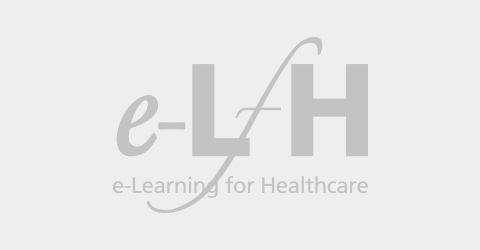About the content
NHS England is approaching how to manage deterioration in a consistent way. This has involved the development and introduction of a framework called PIER which focuses on prevention, identification, escalation and response to ensure early recognition and management of deterioration.
The new national Maternity Early Warning Score (MEWS) tool has been developed with key stakeholders to replace the range of different MEWS tools that are currently available and sits within the PIER framework. The MEWS tool has been designed to ensure that identification of deterioration is based on pure physiology using a total score. This total score is combined with subjective assessments (additional concerns) which support the escalation process.
The new Newborn Early Warning Track and Trigger (NEWTT2) tool also sits within the PIER framework and replaces the NEWTT framework designed by the British Association of Perinatal Medicine (BAPM) in 2015. BAPM have updated the tool to reflect quality improvement methodology and feedback from healthcare professionals.
NHS England have developed 2 elearning sessions to support the introduction and implementation of the 2 new tools:
1. Introduction to the Maternity Early Warning Score
This session introduces the new national Maternity Early Warning Score (MEWS) tool and describes why and how the tool was developed. The learning outcomes are:
- describe how MEWS links to the PIER framework
- explain how to complete a MEWS tool
- explain the difference of postnatal pulse and the significance on the MEWS tool
- describe how the presence of additional concerns supports escalation
- describe the graduated thresholds and triggers table
2. Deterioration of the newborn NEWTT2
This session introduces the new Newborn Early Warning Track and Trigger (NEWTT2) tool. The learning outcomes are:
- explain the link between NEWTT2 and PIER framework
- describe how to complete a NEWTT2 tool
- explain the inclusion of normothermia and critical observations
- explain the graduated thresholds and triggers table
More information
A recurring theme in national reports into maternity care has highlighted a combination of failures in the management of deterioration. These include failure to recognise signs of deterioration and failure to escalate concerns and respond to them.
Due to normal physiological changes of pregnancy, the National Early Warning Score (NEWS) is not directly transferrable to the pregnant population.
There is a wide variation in the range of MEWS tools currently in use. This includes variation in the included physiological parameters, cut offs for alerting, escalation, and variation in clinical areas within which a MEWS tool is used.
The national MEWS tool has been developed with key stakeholders and designed with insights from population data and consensus building with healthcare professionals.
Primary and secondary audiences
All healthcare professionals engaged in hospital based perinatal care.
Clinical team

Tony Kelly
Consultant Obstetrician. National Clinical Adviser, Maternity and Neonatal Safety Improvement Programme
Hannah Rutter
RM. Senior Improvement Manager, Maternity and Neonatal Safety Improvement Programme
Amanda Andrews
RM. Programme Manager, Innovation Agency AHSN
Tracey Sargent
RM. Programme Manager – Children, Young People and Maternity, Southwest AHSN
Tendai Nzirawa
FRCN, RN, RSCN. Maternity Clinical Improvement Lead, Eastern AHSN
elfh team members

Sarah Gray
Programme Manager, NHSE eLearning for healthcare
Essi Niittymaki
Project Manager, NHSE eLearning for healthcare
Karen Walker
Lead Learning Designer, NHSE eLearning for healthcare
Ian Blacklock
Learning Designer, NHSE eLearning for healthcare
Abigail Lingford
Graphic Designer, NHSE eLearning for healthcare
Louise Garrahan
Senior Marketing and Communications Officer, NHSE eLearning for healthcare
How to access
Available to all
The new Maternal and Neonatal Deterioration course is freely available to access here.
Please note your progress and completion of sessions will not be recorded and you will not be able to generate a record of completion. If you require evidence of learning, please register and then log in to access this programme on the elfh Hub.
If you already have an account with elfh, then you can enrol on to the Maternal and Neonatal Deterioration course by logging in to the elfh Hub, selecting My Account > Enrolment and selecting the Recognising and managing deterioration programme. You can then access the programme immediately in the My eLearning section.
To view the Maternal and Neonatal Deterioration course, select the View button below. If you already have an account with elfh, you will also be able to login and enrol on the programme from the View button.
Registering large numbers of users
If you are a HR, IT or Practice Manager and would like to register and enrol large numbers of staff within your organisation for access onto the News and Deterioration programme, please contact elfh directly.
Organisations wishing to use their own LMS
For HR departments wanting to know more about gaining access to courses using an existing Learning Management System please contact elfh directly to express interest.
More information
Please select the following link for more information on how to use the elfh Hub.



